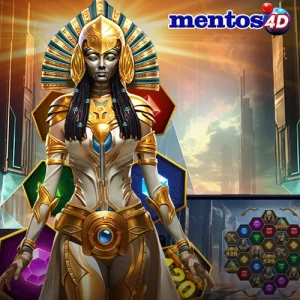Introduction:
In the ever-expanding digital landscape, online gaming has emerged as a dominant force, shaping the way we interact, compete, and connect with others worldwide. What began as simple text-based adventures has evolved into immersive, graphically-rich experiences that transcend borders and time zones. This article explores the evolution of online gaming, its impact https://mentos4d.news on society, and the vibrant communities that thrive within this virtual realm.
The Early Days:
The roots of online gaming can be traced back to the 1970s and 80s when pioneering developers created rudimentary multiplayer games accessible through early computer networks. These text-based adventures laid the foundation for what would become a global phenomenon. Games like MUDs (Multi-User Dungeons) allowed players to explore virtual worlds, interact with others, and embark on collaborative quests, setting the stage for the social aspects of online gaming.
The Rise of Massively Multiplayer Online Games (MMOs):
The late 1990s and early 2000s witnessed the rise of MMOs, a genre characterized by vast, persistent virtual worlds populated by thousands of players. Titles like “Ultima Online” and “EverQuest” captivated gamers with their immersive environments, persistent character progression, and opportunities for social interaction. These games served as virtual meeting grounds where players from diverse backgrounds could come together to form alliances, undertake epic quests, and forge lasting friendships.
The Advent of Esports:
As online gaming continued to evolve, competitive play became increasingly prominent. Esports, or electronic sports, emerged as organized competitions where professional gamers showcased their skills in popular titles such as “Counter-Strike,” “League of Legends,” and “Dota 2.” These events draw massive audiences, with millions tuning in to watch tournaments held in arenas around the world or broadcasted online. Esports has become a lucrative industry, with top players earning significant prize money and sponsorship deals.
The Social Aspect:
One of the most significant impacts of online gaming is its ability to foster social connections in a digital age. Through voice chat, messaging platforms, and in-game interactions, players can communicate and collaborate with others regardless of geographical distance. Friendships formed in virtual worlds often extend beyond the game, leading to real-life meetups, shared experiences, and lifelong bonds. For many, online gaming serves as a vital social outlet, particularly during times of isolation or adversity.
Community and Culture:
Online gaming communities encompass a diverse array of individuals united by their shared passion for gaming. These communities often develop their own unique cultures, traditions, and slang, creating a sense of belonging for participants. From guilds in MMOs to subreddits dedicated to specific games, these communities provide a platform for players to exchange strategies, share experiences, and celebrate their love of gaming. In some cases, these communities have even mobilized for charitable causes, raising funds and awareness through gaming marathons and events.
Challenges and Opportunities:
While online gaming offers numerous benefits, it also presents challenges, including issues of toxicity, addiction, and online harassment. Developers and community moderators work tirelessly to address these issues and create inclusive, welcoming environments for players of all backgrounds. Additionally, the rise of microtransactions and loot boxes has sparked debates about the ethics of monetization in gaming and its impact on player experiences.
Looking Ahead:
As technology continues to advance, the future of online gaming appears brighter than ever. Virtual reality (VR) and augmented reality (AR) promise to immerse players in even more realistic and interactive worlds, while advancements in cloud gaming could make high-quality gaming experiences more accessible than ever before. With the continued growth of esports and the emergence of new genres and platforms, online gaming is poised to remain a cornerstone of entertainment and social interaction in the digital age.
Conclusion:
Online gaming has come a long way since its humble beginnings, evolving into a global phenomenon that transcends boundaries and brings people together in virtual worlds. From massive multiplayer epics to intense esports competitions, the impact of online gaming on society is undeniable. As technology continues to evolve, so too will the ways in which we play, connect, and compete in the digital realm, ensuring that the legacy of online gaming will endure for generations to come.
